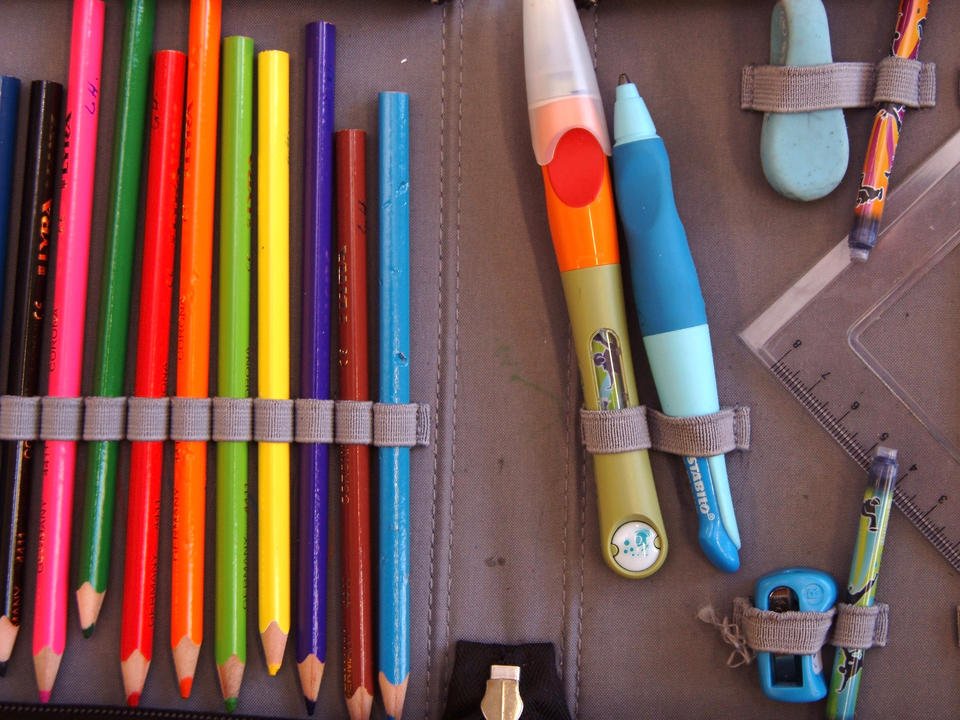
Experts have the answer
That is required!


The expert
is the head of the "Motley Butterflies", a crèche of the Bavarian Red Cross in the Nuremberg City Association.
Here you can find out what training companies expect from their trainees.

Empathy and assertiveness
Our work is about knowing each child and encouraging them through play. For this you should bring sensitivity and empathy. This applies to every single protégé as well as to the whole group with up to twelve children. That’s why you need a healthy self-confidence and a good dose of assertiveness to make you heard.

Having fun with people
Anyone who works for us does not only have to do with the children: working with the parents is also part of everyday work. Therefore, you should also be open and friendly with the parents and involve them in the work of the facility.

When parents entrust their children to us, they rely on us – whatever happens – to always put the wellbeing and safety of their child first. Reliability is therefore essential. You should always keep this in mind.

Commitment – interest in further training
The framework conditions change so often in the pedagogical professions that you should always be willing to learn. Further training, for example on music, health or exercise, is a big topic for us. But regularly refreshing pedagogical knowledge is also very important. In general, the demands placed on caregivers of small children in Germany are increasing.

Talented in planning and organization
Those who look after as many children as we do are best prepared. You should plan games, singing circles, creative work or excursions in advance and sometimes also discuss them with your parents.
Interesting too

Health and social management

care, support
Professions in the work area

watch closely
In order to support children and young people in a targeted manner, educators implement educational concepts. They observe the behavior of their charges, for example when playing. From this they can draw conclusions as to whether they are successful with their support measures – for example, they train fine motor skills through movement and handicrafts. Educators in youth and home education observe the progress of their protégés and provide exercise materials and learning aids depending on the individual >Funding needs available.

Promote creativity
Crafts, painting, singing, making music – these activities are fun for children and adults alike and offer the opportunity to express themselves creatively. Educators and music teachers have the task of arousing the desire for such activities, instructing the students competently and motivating them to practice. Patience and the ability to get others excited about something are important. See also section “Design, Music, Dance, Acting".

Create concepts
Educators pay attention to the indiv >Weekly and monthly plans created for each child. And also in kindergarten, parents want to know how their child is supported and how they can best support it themselves. An important basis for the concept development is the structured observation of the behavior of the children.

teaching
Educators for youth and home education, for example, give support hours. They design the lessons in such a way that the prior knowledge and learning strength of the pupils are in focus. They prepare the lessons by selecting materials and creating worksheets. To teach is not enough to have a lot of expertise. You also have to motivate the students and be able to assert themselves in the class. Incidentally, this also applies to music and sports teachers.

Advise parents
When raising their children, parents or legal guardians are not left alone: specialists, the children promote and teach, give suggestions, advice and support. To do this, they organize parents’ evenings or make an appointment with the parents if there are problems. Patience and empathy are required. Sometimes it is not easy to convince parents to change their behavior and to practice regularly with the children, for example.

take care of
Infants and young children cannot take care of themselves yet. The responsible carers change them, take care of the personal hygiene and put them on. They also prepare meals and feed the children, play with them and look after them when they are sick. As a childcare worker in the home, great personal commitment is expected of you. You take on the role of a close caregiver and help the children find their way.
Are you sure you are correct in this area? Take a look at the other areas as well.

Educator / inside
look after children and adolescents mainly in kindergartens, crèches, homes and after-school centers. They promote both social behavior in the group and the personal development of each individual by offering games, handicrafts or excursions.

Educators – youth and home education
look after and look after children and adolescents in homes, the the Supplement or replace family. As close caregivers of the children, they not only pay attention to nutrition and personal hygiene, but also to good personal, academic and professional development. They also keep in touch with family, teachers and trainers.

Specialist teachers – musical-technical subjects
teach students up to tenth grade in the subjects housekeeping, sport, technology, economics / IT, art or music. Evenings with parents, conferences and hiking days are part of their everyday life.

Music teacher / inside
teach their students about singing, music reading, music theory and instrument playing. Lessons take place in class, in groups or individually. Not only do you need pedagogical knowledge, you also master at least one instrument very well.

Social pedagogical assistants
look after infants and toddlers, sometimes also adolescents. They guide the children to play, help with personal hygiene and care. They prepare meals and ensure order and cleanliness in facilities such as kindergartens or private households.

Sports teacher / inside
help inexperienced or poorly trained people to exercise more and thus promote their health. But they also prepare for competitions through regular training. Did you know that they also work for sports tour operators??
Info: Financial
training allowance
Apprentices who do a dual apprenticeship, i.e. learn in the company and at the vocational school, receive a training allowance. School education is usually not remunerated. There are exceptions, for example, in nursing professions.
Costs and finances
Fees may apply for some training courses, especially at private schools. Public schools, on the other hand, are usually free of charge. Nevertheless, costs can arise, for example for books.
Trainees can apply for financial support. BAföG is possible for school-based training and vocational training allowance for company-based training.
Frequent and rare training
Some courses are offered quite often, while others are rather rare. Still others are preferred in certain regions. You can find training places near you at:
RELATED ITEMS
-

Sport with children: advice for parents
Peter Großmann Sport is not only important for the well-being of adults, but also for that of children. Especially for a healthy physical…
-

Education, educational work with children and adolescents, professional world: studies
Introduction An overview of the world of work In the area of education and pedagogical work, academic professionals are always needed. they teach…
-

Education: what parents can do if their child doesn’t hear – without screaming – focus online
Spotted an Error? Anyone who has children knows the situation: sometimes the little ones just don’t want to do what they’re asked to do. And if…
-

Education – children need clear rules, kidsgo
In this Article: Upbringing – Children Need Clear Rules Even If This Is Only a Small, Everyday Example, Parents Often Ask the Question,…
